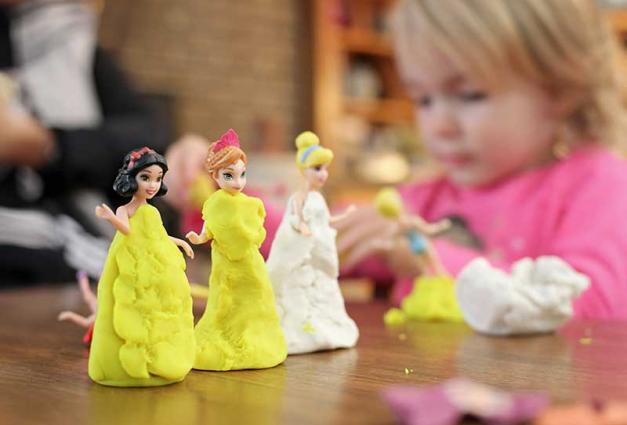As a new parent, I cannot deny that recently, I have been thinking deeper about what it means to raise a Black child in America. My child was born in the midst of the COVID-19 global pandemic, which coincided with worldwide movements for racial justice and opposing movements to abolish the teaching and discussion of structural racism in schools.
When I look into my child's eyes, I see the beauty of their innocence and pure joy unscathed by the racial turmoil in the United States. However, as a social worker and developmental psychologist who studies racial justice and Black youth well-being, I am cognizant of the reality that I cannot fully shield my child from racism; it is an omnipresent system that permeates the very core of American society. Nevertheless, like generations of Black parents before me, I can use cultural tools to prepare my child to contend with the ramifications of racism.
One such tool is racial socialization—verbal and nonverbal messages that teach people about race and racism. While researchers have identified racial socialization as a tool to support Black youth in being resilient to racism, in our study, my colleagues and I were interested in examining whether racial socialization could support youth in actively challenging racism. With the participation of 500 Black youth from across the United States, we used survey data to study whether youth's experiences of racial socialization from their caregivers were related to their sociopolitical development, which is the process of developing the knowledge, skills, and emotional capacity to analyze and respond to sociopolitical systems.
We found that youth who reported more messages from their caregivers that prepared them for racial bias and engaged in actions with their caregivers to promote cultural pride also reported higher awareness of racial inequality. Youth who reported more of these two forms of racial socialization also had higher confidence and motivation to address racism and be an agent of change in their community.
We also found that racial socialization was related to action but in different ways depending on the type of socialization. Receiving more verbal messages to prepare for discrimination was only directly related to higher political/communal racial justice action, such as participating in an organization focused on racial justice. However, receiving more actions from caregivers to promote cultural pride (such as being taken to Black cultural events) was directly related to higher engagement in three forms of action: political/communal action, interpersonal action (such as challenging individuals who make racist comments), and online actions (for example, posting about racial justice issues on social media).
As I contemplated the findings of this work, I thought about the youth organizers whom I have had the privilege to meet and those whose stories I've read. It felt important to determine how to illustrate the findings of this work amplifying the lived experiences and voices of young people. Below, I document our research findings by telling the stories of young people through a hip-hop song. Across the verses, I describe youth reflecting on the challenges of multiple manifestations of racism including racial profiling in schools and in their communities and vicarious trauma due to the constant news cycle documenting the murders of Black Americans. Through the youth's reflection, they are reminded of the racial messages and actions that their parents provided them to educate them about their culture and prepare them to encounter racism. These messages become the catalyst for youths' actions to challenge individuals who perpetuate racism and organize for racial justice online and in their communities.
For Further Reading
Anderson, R. E., & Stevenson, H. C. (2019). RECASTing racial stress and trauma: Theorizing the healing potential of racial socialization in families. American Psychologist, 74(1), 63–75. https://doi.org/10.1037/amp0000392
Anyiwo, N., Bañales, J., Rowley, S. J., Watkins, D. C., & Richards-Schuster, K. (2018). Sociocultural influences on the sociopolitical development of African American youth. Child Development Perspectives, 12(3), 165-170. https://doi.org/10.1111/cdep.12276
Watts, R. J., Griffith, D. M., & Abdul-Adil, J. (1999). Sociopolitical development as an antidote for oppression—theory and action. American Journal of Community Psychology, 27(2), 255-271. https://doi.org/10.1023/A:1022839818873
Nkemka Anyiwo is an Assistant Professor of Social Work at Columbia University. She studies the roles of culture and community in how Black youth make meaning of themselves and engage in practices to promote joy, social justice, and personal and collective wellness.




